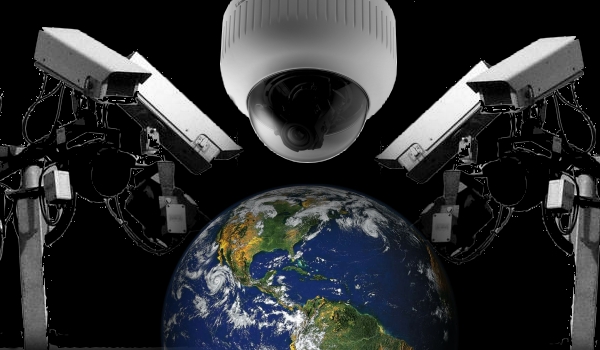by Jonathan Turley
In yet another break with its campaign promise to fight to restore civil liberties and privacy, the Obama Administration has made a breathtaking claim of state secrets to block a public interest organization from suing the government for illegal surveillance. There is not a scintilla of difference in the legal position of President Obama and the position of President Bush in trying to quash any effort to challenge unlawful surveillance by the government. It appears the “yes we can” means “yes we can do most anything that we want” when it comes to unlawful programs.

The Administration is moving to kill a lawsuit brought by the Electronic Frontier Foundation on behalf of AT&T customers who were unlawfully intercepted by the government. Not only is the Administration making an extreme argument under the military and state secrets doctrine but it is claimed that citizens cannot sue, even if the government engages in unlawful surveillance, under the Patriot Act. Due to changes put through with Democratic support, the statute is being used to block any lawsuit unless the citizens can show that there was “willful disclosure’” of the communications by the government.
Congress passed the new language last summer with the support of then Sen. Obama in a complete caving into the powerful telecommunications lobby. Chief U.S. District Judge Vaughn Walker has been addressing the impact of this law in dozens of public interest lawsuits. At the same time, the Obama administration is invoking state secrets to try to prevent the review of evidence in the case of the Al-Haramain Islamic Foundation. The Administration has even threatened to remove a document from the Court after Judge Walker ruled against it — a position that exceeds even the Bush Administration.
For the government filing, click here.
Government opts for secrecy in wiretap suit
By Bob Egelko, San Francisco Chronicle
The Obama administration is again invoking government secrecy in defending the Bush administration’s wiretapping program, this time against a lawsuit by AT&T customers who claim federal agents illegally intercepted their phone calls and gained access to their records.
Disclosure of the information sought by the customers, "which concerns how the United States seeks to detect and prevent terrorist attacks, would cause exceptionally grave harm to national security," Justice Department lawyers said in papers filed Friday in San Francisco.
Kevin Bankston of the Electronic Frontier Foundation, a lawyer for the customers, said Monday the filing was disappointing in light of the Obama presidential campaign’s "unceasing criticism of Bush-era secrecy and promise for more transparency."
In a 2006 lawsuit, the AT&T plaintiffs accused the company of allowing the National Security Agency to intercept calls and e-mails and inspect records of millions of customers without warrants or evidence of wrongdoing.
The suit followed President George W. Bush’s acknowledgement in 2005 that he had secretly authorized the NSA in 2001 to monitor messages between U.S. residents and suspected foreign terrorists without seeking court approval, as required by a 1978 law.
Congress passed a new law last summer permitting the surveillance after Bush allowed some court supervision, the extent of which has not been made public. The law also sought to grant immunity to AT&T and other telecommunications companies from suits by customers accusing them of helping the government spy on them.
Nearly 40 such suits from around the nation, all filed after Bush’s 2005 disclosure, have been transferred to San Francisco and are pending before Chief U.S. District Judge Vaughn Walker. He is now reviewing a constitutional challenge to last year’s immunity law, which the Obama administration is defending.
Walker is also considering a challenge to the surveillance program by the Al-Haramain Islamic Foundation, a now-defunct charity that was inadvertently given a government document in 2004, reportedly showing that its lawyers had been wiretapped during an investigation that landed the group on the government’s terrorist list.
The Obama administration is also opposing that suit and has challenged Walker’s order to let Al-Haramain’s lawyers examine the still-classified surveillance document.
The administration’s new filing asks Walker to dismiss a second suit filed in September by AT&T customers that sought to sidestep the telecommunications immunity law by naming only the government, Bush and other top officials as defendants.
Like the earlier suit, the September case relies on a former AT&T technician’s declaration that he saw equipment installed at the company’s San Francisco office to allow NSA agents to copy all incoming e-mails. The plaintiffs’ lawyers say the declaration, and public statements by government officials, revealed a "dragnet" surveillance program that indiscriminately scooped up messages and customer records.
The Justice Department said Friday that government agents monitored only communications in which "a participant was reasonably believed to be associated with al Qaeda or an affiliated terrorist organization." But proving that the surveillance program did not sweep in ordinary phone customers would require "disclosure of highly classified NSA intelligence sources and methods," the department said.
Individual customers cannot show their messages were intercepted, and thus have no right to sue, because all such information is secret, government lawyers said. They also said disclosure of whether AT&T took part in the program would tell the nation’s enemies "which channels of communication may or may not be secure."
E-mail Bob Egelko at begelko@sfchronicle.com.

It makes sense that this is still going on because of two very real possiblities:
1)Bush is still running things. (Anyone who pays attention will see that Obama and Bush had long meetings before Obama took office and to this day they still talk to each other. Obama is taking direction from Bush).
2)Obama on his own, is just as much a criminal as Bush